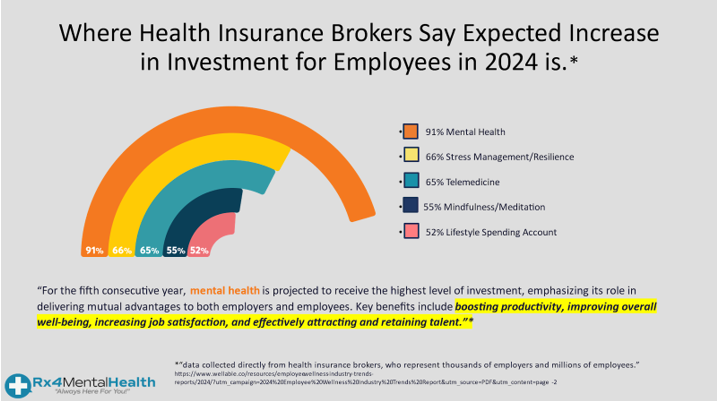May is recognized as Mental Health Month in order to raise awareness about mental health and promote overall mental wellness. It is an opportunity to encourage individuals to prioritize their mental health, seek help if needed, and reduce the stigma surrounding mental health issues.
Mental health issues affect a large portion of the population, with an estimated one in five adults experiencing some form of mental illness in a given year. These issues can have a significant impact on an individual’s daily life, including their work, relationships, and overall well-being.
During Mental Health Month, organizations and individuals come together to promote mental health awareness and reduce the stigma surrounding mental health issues. Activities and events are organized to educate the public about mental health, offer support to those struggling with mental health issues, and encourage individuals to seek help if needed.
Mental Health Month is also an opportunity to advocate for better mental health resources and policies, and to raise awareness about the importance of mental health care in overall health and wellness. By recognizing the importance of mental health and taking steps to prioritize it, individuals and communities can work towards a healthier and happier society.
There are many options available for individuals looking to improve their mental health. Here are a few examples:
- Seek professional help: Mental health professionals, such as therapists, psychiatrists, and counselors, can provide guidance and support to individuals struggling with mental health issues.
- Practice self-care: Self-care activities such as exercise, meditation, getting enough sleep, and spending time in nature can help improve mental health.
- Connect with others: Social support is important for mental health, and connecting with friends, family, or support groups can provide a sense of belonging and reduce feelings of isolation.
- Practice mindfulness: Mindfulness practices such as deep breathing, journaling, and yoga can help individuals stay present and manage stress and anxiety.
- Set achievable goals: Setting goals and achieving them can boost self-esteem and provide a sense of purpose and accomplishment.
- Seek medication management: For some individuals, medication can be a helpful tool in managing mental health issues. It’s important to consult with a medical professional before starting any medication.
- Avoid alcohol and drug use: Substance use can worsen mental health symptoms and make it more difficult to manage mental health issues.
Overall, improving mental health is a unique process for each individual. It’s important to seek out the resources and support that work best for you.
Mental health issues can affect anyone, regardless of age, gender, race, or socioeconomic status. However, there are certain groups that may be more at risk of experiencing mental health issues. These include:
- Young adults: Young adults are at a higher risk for mental health issues, such as depression and anxiety, due to the many stressors they face, such as academic pressure, social challenges, and the transition to adulthood.
- Women: Women are more likely than men to experience depression and anxiety, which may be related to hormonal changes, life stressors, and social expectations.
- Individuals with a family history of mental illness: Individuals with a family history of mental illness may be more likely to develop mental health issues themselves.
- Individuals who have experienced trauma: Trauma, such as physical or emotional abuse, can increase the risk of developing mental health issues, such as post-traumatic stress disorder (PTSD).
- Individuals with chronic illnesses: Individuals with chronic illnesses, such as diabetes or heart disease, may be at a higher risk for depression and anxiety.
- Individuals with a history of substance abuse: Substance abuse can contribute to the development of mental health issues, and individuals with a history of substance abuse may be more at risk for mental health issues.
It’s important to note that mental health issues can affect anyone, and seeking help is important regardless of your background or risk factors.
If you aren’t able to seek professional help due to cost or other unavailability, but still need some additional help, then Rx 4 Mental Health is here to help. We offer the most affordable, accessible and confidential virtual mental health therapy in the country. At just $39.95 per month, which includes your whole family 13+, your family members each have access to:
- 24 / 7 Acute help therapist
- 24 / 7 Doctor for medical needs
- On-Demand therapy with a Ph.D. Psychologist or Psychiatrist or Therapist
No contract and cancel anytime!
Always here for you!





